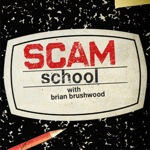 One of the toughest and most common of all memory challenges is putting a name with someone's face. Since it's also one of the most vital memory techniques to learn, we'll discuss both techniques, as well as how to use your iPhone or iPod Touch to practice the techniques.
One of the toughest and most common of all memory challenges is putting a name with someone's face. Since it's also one of the most vital memory techniques to learn, we'll discuss both techniques, as well as how to use your iPhone or iPod Touch to practice the techniques.
Techniques
wikiHow: How to Memorize Names and Faces – The advice here is a little basic, but that also makes it an excellent starting point! Most of the articles I describe here boil down to these basics.
Get-It-Done-Guy: How To Remember Names – This article employes the basics from the previous one, but fleshed out with a real-world feel to it, to help you understand how to apply it.
Edward E. Wilson: How To Remember Names – Again, the same basics here (are you beginning to see why they're so important?), but with different techniques for applying them. I like the use of the “video game” technique to visualize the name.
How To Remember Names and Faces: How to Develop a Good Memory – This is a great book (downloadable!) that goes into much more detail about remembering names, and even includes 35 test photos that help you learn to apply the techniques.
Howdini: Tips for remembering names – Here's a video that really helps drive the techniques home.
Memorize Names and Faces using your iPhone and Facebook – Since I'm about to move into talk about how to use your iPhone or iPod Touch to memorize names and faces, here's a great article on using the built-in capabilities of iPhone and Facebook to help you remember names and faces.
iPhone/iPod Touch Apps
Since we're dealing with faces, these apps require pictures to be effective. The iPhone has a built-in camera, but iPod Touch users will probably need to carry a camera to make the most out of these programs.
e-Faces and Names (iTunes Link) – Here's a free app that not only quizzes you on names and faces you provide, but gives you tips and keeps your statistics handy!
FacesNames (iTunes Link) – This is the app pictured at the top left corner of this post. It's simple and direct, in that it can quiz you by giving you either the picture or the name, and asking you to supply the missing piece.
Gist (iTunes Link) – Gist isn't in and of itself a names and faces, but it does include a feature called Learn That Name, that quizzes you on names and faces.
iKnowYou (iTunes Link) – This is a another free app that can test you on both famous faces from history and your own personal contacts!
Roster Recall (iTunes Link) – This one is geared towards teachers who need to learn their students' names as soon as possible. It even lets you divide up the student information by class!
Have you found any techniques or apps that are handy for remembering names and faces? I'd love to hear about them in the comments!


 It's time once again to mix a math with a little magic!
It's time once again to mix a math with a little magic!
 In this post, I'm going to send you off exploring!
In this post, I'm going to send you off exploring! (
(
 I was all set to do my standard April Fool's Day post for April 1st, when I got some bad news.
I was all set to do my standard April Fool's Day post for April 1st, when I got some bad news. 

